Julia Roberts Walked Off Oscar-Winning Movie After Botching Accent: “There Was No Magic”
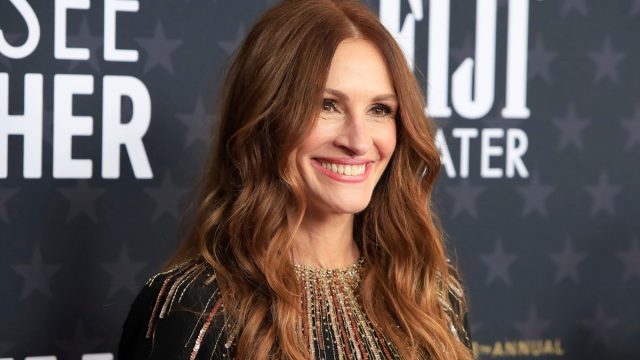
Julia Roberts is known for her iconic smile and her starring roles in some of Hollywood’s biggest blockbusters. She’s also gotten her fair share of awards recognition: Roberts was nominated for Best Supporting Actress and Best Actress twice—and in 2001, she took home the Oscar for her leading role in Erin Brockovich. While she has no shortage of accolades, Roberts missed out on 1998 Best Picture winner Shakespeare in Love, and a role that earned Gwyneth Paltrow an Oscar of her own.
According to one of the film’s producers, Edward Zwick, Roberts was involved in the project during the early ’90s, but dropped out after taking some heat for her British accent. Read on to find out more about Roberts’ sudden departure from the project.
READ THIS NEXT: The Real Reason Why Julia Roberts & George Clooney Never Dated.
Roberts loved the script—and had a particular co-star in mind.
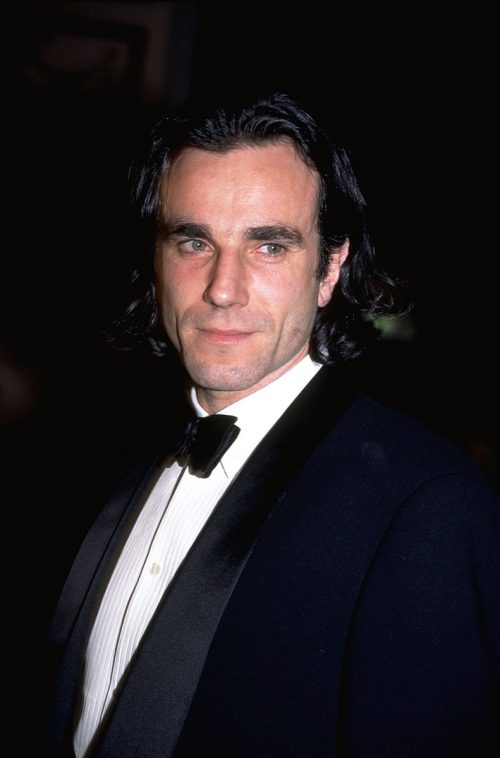
Shakespeare in Love, which tells the story of William Shakespeare’s romance with the fictional Viola de Lesseps, took home seven Academy Awards, including Best Actress for Paltrow, who played Viola. But before Paltrow stepped into the role, the part of Viola belonged to Roberts, according to an excerpt from Zwick’s new memoir.
On March 4, Zwick released the first chapter in Air Mail, which documents his experience working on the movie. Zwick describes his first interactions with Roberts, who told him she loved the script—and that she wanted Daniel Day-Lewis to star opposite her. She even sent Day-Lewis a bouquet of roses asking him to “Be my Romeo.” However, the Oscar-winner was committed to another film, personally letting Zwick know that he was unavailable.
Day-Lewis’ rejection apparently didn’t sit well with Roberts, Zwick says, and when it was time to do chemistry reads with other potential co-stars, things went awry.
“Something was wrong” when Roberts read her lines.
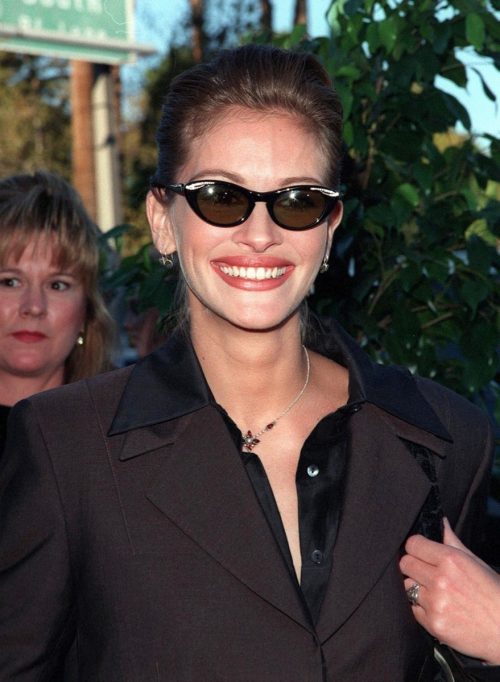
According to Zwick, several big-name actors were ready to audition for Shakespeare, and he was most excited about having Roberts read with Ralph Fiennes. But even though Fiennes tried to “elicit the famous smile,” Roberts wasn’t playing ball.
“Julia barely acknowledged him,” Zwick writes. “I’m not suggesting she was deliberately sabotaging, but it was a disaster nonetheless. I tried to catch Ralph’s eye to apologize as he left but he couldn’t get out of there fast enough.”
The pattern continued with other British actors, including Hugh Grant, Rupert Graves, Colin Firth, Sean Bean, and Jeremy Northam. According to Zwick, Roberts “found fault with all of them: one was stiff, another wasn’t romantic, and so on.” However, she was willing to read with one actor, Paul McGann. A screen test was promptly arranged and hopes were high.
“On the morning of the test, Julia emerged from makeup, looking radiant in full period costume,” Zwick writes. “But once she began to say the words, something was wrong. There was no magic.”
RELATED: For more up-to-date information, sign up for our daily newsletter.
Roberts left the film shortly after the reading.
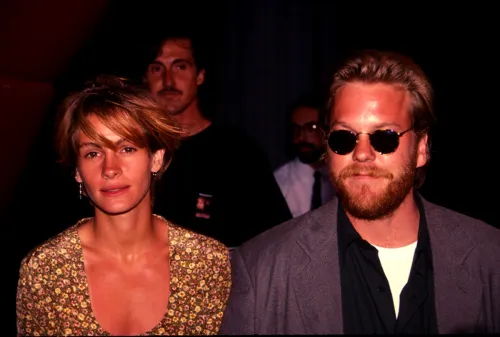
Zwick states that it wasn’t an issue with the script or with McGann, but with Roberts. “From the moment she began to speak it was clear she hadn’t been working on the accent,” he writes.
The producer notes that he “tried to be encouraging” about Roberts’ British accent, but says that at the end of the day, “she must have intuited my unease, and I made the tragic mistake of underestimating her insecurity.”
Zwick suggests that Roberts “must have been terrified to fail,” as she’d recently become a Hollywood superstar and experienced some very public romantic rifts. As the producer recounts, she’d just left her fiancé Kiefer Sutherland “more or less … at the altar.”
While the exact reasons for Roberts’ departure were unclear, the damage was done, and Zwick never got the chance to address any of her concerns. “The next morning when I called her room, I was told she had checked out,” he writes.
Later that day, Roberts’ manager informed him that she’d flown back to the U.S., after production had already invested $6 million in the movie. The head of Universal Pictures at the time, Tom Pollock, vowed to get Roberts back on board, but failed to do so.
Zwick says that was the last time he spoke to Roberts. “I’ve observed from afar as her work grew in depth and stature. I bear her no ill will. She was a frightened 24-year-old,” he writes, adding that he wasn’t much older at the time. He was, however, trying to “act the grown-up” with the movie’s future in limbo.
Best Life reached out to Roberts’ representatives for comment, but has yet to hear back.
All’s well that ends well (somewhat).
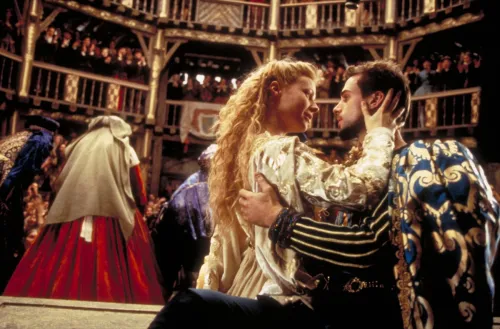
Years later, the film did make it to the big screen, with Paltrow and Joseph Fiennes (Ralph’s brother) in the leading roles. In addition to Oscars, the film took home three Golden Globes and two Screen Actors Guild Awards, among several others.
But the film was also produced by now-disgraced producer Harvey Weinstein. Weinstein was found guilty of sexual assault and rape in both New York and Los Angeles courts and has been sentenced to 24 years in prison. Weinstein has denied the allegations.
In his essay, Zwick doesn’t hold back when it comes to Weinstein, calling him “a villain worthy of Shakespeare.”